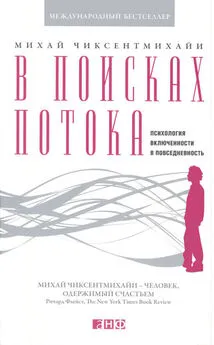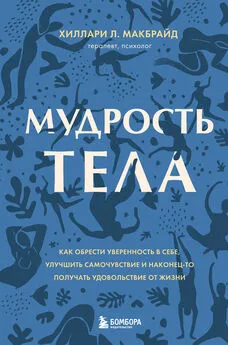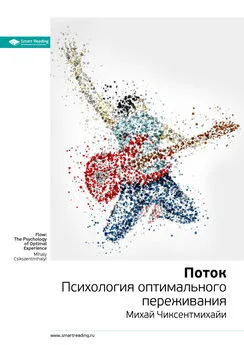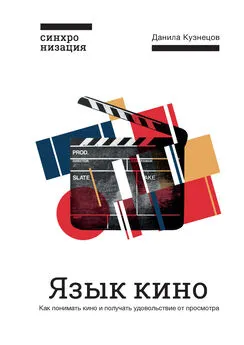Михай Чиксентмихайи - Бегущий в потоке. Как получать удовольствие от спорта и улучшать результаты
- Название:Бегущий в потоке. Как получать удовольствие от спорта и улучшать результаты
- Автор:
- Жанр:
- Издательство:Литагент МИФ без БК
- Год:2018
- Город:Москва
- ISBN:978-5-00100-972-6
- Рейтинг:
- Избранное:Добавить в избранное
-
Отзывы:
-
Ваша оценка:
Михай Чиксентмихайи - Бегущий в потоке. Как получать удовольствие от спорта и улучшать результаты краткое содержание
Люди, которые регулярно испытывают состояние «потока», как правило, живут более счастливой и наполненной жизнью.
На русском языке публикуется впервые.
Бегущий в потоке. Как получать удовольствие от спорта и улучшать результаты - читать онлайн бесплатно ознакомительный отрывок
Интервал:
Закладка:
Locke E.A., Latham G.P. New directions in goal-setting theory. Current Directions in Psychological Science. 2006, 15(5), 265–268.
Noakes T. Lore of running. 4th ed. Champaign: Human Kinetics, 2002.
Paavolainen L., Häkkinen K., Hämäläinen I., Nummela A., Rusko H. Explosive-strength training improves 5-km running time by improving running power. Journal of Applied Physiology. 1999, 86(5), 1527–1533.
Pfitzinger P., Latter P. Faster road racing: 5K to half marathon . Champaign: Human Kinetics, 2015.
Statistic Brain. New years resolution statistics. 2015. Source: http://www.statisticbrain.com/new-years-resolution-statistics.
Thompson R.W., Kaufman K.A., De Petrillo L.A., Glass C.R., Arnkoff D.B. One year follow-up of mindful sport performance enhancement (MSPE) with archers, golfers, and runners. Journal of Clinical Sport Psychology . 2011, 5(2), 99–116.
Wiese B.S., Freund A.M. Goal progress makes one happy, or does it? Longitudinal findings from the work domain. Journal of Occupational and Organizational Psychology . 2005, 78(2), 287–304. doi: 10.1348/096317905X26714.
Bond P. Running with the mind of meditation. Trail Runner Magazine. 2008, April. Retrieved from: http://trailrunnermag.com/people/1648-running-with-the-mindof-meditation.
Cianciosi J. Mindful nature walking one step at a time. Yoga Journal Online. 2007. http://www.yogajournal.com/article/practice-section/mindful-nature-walkingone-step-at-a-time.
Csikszentmihalyi M. Flow: The psychology of optimal experience. N.Y.: Harper Collins, 1990.
Dietrich A. Functional neuroanatomy of altered states of consciousness: The transient hypofrontality hypothesis. Consciousness and Cognition: An International Journal . 2003, 12(2), 231–256. doi: 10.1016/S1053-8100(02)00046-6.
Fuller R.A. et al. Psychological benefits of greenspace increase with biodiversity. Biology Letters. 2007, 3(4), 390–394.
Kaplan R. The role of nature in the context of the workplace. Landscape and Urban Planning. 1993, 26(1), 193–201.
Karageorghis C.I., Priest D. Music in the exercise domain: A review and synthesis (Part I). International Review of Sport and Exercise Psychology . 2012, 5(1), 44–66. doi: 10.1080/1750984X.2011.631026.
Koudenburg N., Postmes T., Gordijn E.H. Conversational Flow Promotes Solidarity. Plos ONE . 2013, 8(11), 1–6. doi:10.1371/journal.pone.0078363.
Lutz A., Slagter H.A., Rawlings N.B., Francis A.D., Greischar L.L., Davidson R.J. Mental training enhances attentional stability: Neural and behavioral evidence. The Journal of Neuroscience . 2009, 29(42), 13 418–13 427. doi: 10.1523/JNEUROSCI.1614-09.2009.
Menezes C.B., Bizarro L. Effects of a brief meditation training on negative affect, trait anxiety and concentrated attention. Paidéia . 2015, 25(62), 393–401. doi: 10.1590/1982-43272562201513.
Mipham S. Running with the mind of meditation. N.Y.: Harmony Books. 2012.
Potteiger J.A., Schroeder J.M., Goff K.L. Influence of music on ratings of perceived exertion during 20 minutes of moderate intensity exercise. Perceptual and Motor Skills . 2000, 91(3, Pt 1), 848–854. doi: 10.2466/PMS.91.7.848–854.
Sio U.N., Ormerod T.C. Does incubation enhance problem solving? A meta-analytic review. Psychological Bulletin . 2009, 135(1), 94–120. doi: 10.1037/a0014212.
Strube M.J., Miles M.E., Finch W.H. The social facilitation of a simple task: Field tests of alternative explanations. Personality and Social Psychology Bulletin . 1981, 7(4), 701–707. doi: 10.1177/014616728174030.
Swann C., Keegan R.J., Piggott D., Crust L. A system review of the experience, occurrence, and controllability of flow states in elite sports. Psychology of Sports and Exercise. 2012, 13 ( 6), 807–819.
Swann C., Keegan R., Piggott D., Crust L., Smith M.F. Exploring flow occurrence in elite golf. Athletic Insight: The Online Journal of Sport Psychology . 2012, 4(2), 171–186.
Ulrich R.S. View through a window may influence recovery from surgery. Science . 1984, 224(4647), 420–421.
Wells N., Evans G. Nearby nature: a buffer of life stress among rural children. Environment and Behavior. 2003, 35(3), 311–330.
Wöran B., Arnberger A. Exploring relationships between recreation specialization, restorative environments and mountain hikers’ flow experience. Leisure Sciences . 2012, 34(2), 95–114. doi: 10.1080/01490400.2012.6525.
Bakker A.B., Oerlemans W., Demerouti E., Slot B.B., Ali D. K.. Flow and performance: A study among talented Dutch soccer players. Psychology of Sport and Exercise . 2011, 12(4), 442–450. doi: 10.1016/j.psychsport.2011.02.003.
Chavez E.J. Flow in sport: A study of college athletes. Imagination, Cognition, and Personality. 2008, 28(1), 69–91.
Dietrich A., Stoll O. Effortless attention, hypofrontality, and perfectionism. In: B. Bruya, B. Bruya (Eds.), Effortless attention: A new perspective in the cognitive science of attention and action . Cambridge: MIT Press, 2010, 159–178.
Engeser S., Rheinberg F. Flow, performance and moderators of challenge-skill balance. Motivation and Emotion. 2008, 32, 158–172.
Hajoglou A., Foster C., de Koning J.J., Lucia A., Kernozek T.W., Porcari J.P. Effect of warm-up on cycle time trial performance. Medicine and Science in Sports and Exercise . 2005, 37(9), 1608–1614. doi: 10.1249/01.mss.0000177589.02381.0a.
Jackson S.A. Athletes in flow: A qualitative investigation of flow states in elite figure skaters. Journal of Applied Sport Psychology , 1992. 4(2), 161–180. doi: 10.1080/10413209208406459.
Jackson S.A. Factors influencing the occurrence of flow state in elite athletes. Journal of Applied Sport Psychology . 1995, 7(2), 138–166. doi: 10.1080/10413209508406962.
Kallenbach S., Zafft C. Attributional retraining: rethinking academic failure to promote success. National College Transition Network: Research to Practice . 2004, 1, 1–3.
Kamphoff C. Personal conversation. 26 August 2015.
Mayo Clinic. Positive thinking: Stop negative self-talk to reduce stress. Healthy Lifestyle: Stress Management. 2014. www.mayoclinic.org/healthy-lifestyle/stress-management/in-depth/positive-thinking/art-20043950.
Rhea M.R., Alvar B.A., Burkett L.N., Ball, S.D. A meta-analysis to determine the dose response for strength development. Med Sci Sports Exerc. 2003, 35(3): 456–464.
Society for Endocrinology. You and your hormones: adrenaline. 2015. www.yourhormones.info/Hormones/Adrenaline.aspx.
Sugiyama T., Inomata K. Qualitative examination of flow experience among top Japanese athletes. Perception and Motor Skills. 2006, 100 (3), 969–982.
Swann C., Keegan R., Piggott D., Crust L., Smith M.F. Exploring flow occurrence in elite golf. Athletic Insight: The Online Journal of Sport Psychology . 2012, 4(2), 171–186.
Triplett N. The dynamogenic factors in pacemaking and competition. American Journal of Psychology. 1898, 9(4), 507–533.
Worringham C.J., Messick D.M. Social facilitation of running: An unobtrusive study. The Journal of Social Psychology . 1983, 121(1), 23–29. doi: 10.1080/00224545.1983.9924462.
Frank M.G. Current advances in sleep biology . N.Y.: Nova Science, 2009.
Gallagher J. Sleep ‘cleans’ the brain of toxins. BBC News. 2013. www.bbc.com/news/health-24567412.
Kraft T.L., Pressman S.D. Grin and bear it: The influence of manipulated facial expression on the stress response. Psychological Science . 2012, 23(11), 1372–1378. doi: 10.1177/0956797612445312.
Mageau G.A., Vallerand R.J., Charest J., Salvy S.J., Lacaille N., Bouffard T., Koestner R. On the development of harmonious and obsessive passion: The role of autonomy support, activity specialization, and identification with the activity. Journal of Personality. 2009, 77(3), 601–646.
O’Keefe J.H., Gheewala N.M., O’Keefe J.O. Dietary strategies for improving post-prandial glucose, lipids, inflammation, and cardiovascular health. Journal of the American College of Cardiology . 2008, 51(3), 249–255. doi: 10.1016/j.jacc.2007.10.016.
Stoeber J., Janssen D.P. Perfectionism and coping with daily failures: Positive reframing helps achieve satisfaction at the end of the day. Anxiety, Stress and Coping: An International Journal . 2011, 24(5), 477–497. doi: 10.1080/10615806.2011.562977.
Williams R. How to deal best with failure and stress. Psychology Today Online: Wired for Success. 2011. www.psychologytoday.com/blog/wired-success/201107/howdeal-best-failure-and-stress.
Alexander C.N., Swanson G.C., Rainforth M.V., Carlisle T.W., Todd C.C., Oates R.M. Effects of the transcendental meditation program on stress reduction, health, and employee development: A prospective study in two occupational settings. Anxiety, Stress and Coping. 1993, 6, 245–262.
Argyle M. The psychology of happiness. 2nd ed. East Sussex: Routledge, 2001.
Boniwell I., Henry J. Developing Conceptions of Well-Being: Advancing Subjective, Hedonic and Eudaimonic Theories. In: C.L. Cooper, I.T. Robertson (Eds.), Management and Happiness . Elgar Research Collection. International Library of Critical Writings on Business and Management, vol. 21. Cheltenham: Elgar, 2013, 3–18.
Bryant F.B., Veroff J. Savoring: A new model of positive experience . Mahwah, NJ: Lawrence Erlbaum Associates, 2007.
Caltabiano M.L. Measuring the similarity among leisure activities based on a perceived stress-reduction benefit. Leisure Studies. 1994, 13, 17–31.
Csikszentmihalyi M. Flow: The psychology of optimal experience. N.Y.: Harper Collins, 1990.
Csikszentmihalyi M., Hunter J. Happiness in everyday life: The uses of experience sampling. Journal of Happiness Studies. 2003, 4, 185–199.
Dempsey P.C., Howard B.J., Lynch B.M., Owen N., Dunstan D.W. Associations of television viewing time with adults’ well-being and vitality. Preventive Medicine: An International Journal Devoted to Practice and Theory . 2014, 69, 69–74.
Feldman D.B., Snyder C.R. Hope and the meaningful life: Theoretical and empirical associations between goal-directed thinking and life meaning. Journal of Social and Clinical Psychology. 2005, 24(3), 401–421.
Fromm E. To have or to be? N.Y.: Harper and Row, 1976.
Hanssen M.M., Vancleef L.G., Vlaeyen J.S., Hayes A.F., Schouten E.W., Peters M.L. Optimism, motivational coping and well-being: Evidence supporting the importance of flexible goal adjustment. Journal of Happiness Studies . 2014, 6(6), 1525–1537. doi: 10.1007/s10902-014-9572-x.
Goucher A., Catalano T. Running the Edge. Self-published. 2011.
Hayden C. Marathon Monks of Mount Hiei. Watertown: Documentary Educational Resources, 2002.
Hsee C.K., Yang A.X., Wang L. Idleness aversion and the need for justifiable busyness. Psychological Science . 2010, 21(7), 926–930. doi: 10.1177/0956797610374738.
Iwasaki Y., Coyle C., Shank J. Leisure as a context for active living, recovery, health and life quality for persons with mental illness in a global context. Health Promotion International. 2010, 25, 483–494.
Lavasani M.G., Ejei J., Mohammadi F. The relationship between meaning of life and optimism with subjective well-being. Journal of Psychology . 2013, 17(1), 3–17.
Читать дальшеИнтервал:
Закладка:
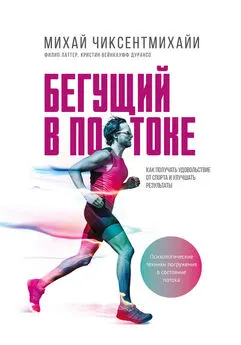

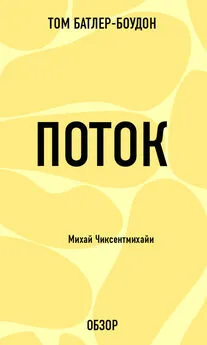
![Данила Кузнецов - Язык кино. Как понимать кино и получать удовольствие от просмотра [litres]](/books/1083613/danila-kuznecov-yazyk-kino-kak-ponimat-kino-i-pol.webp)
